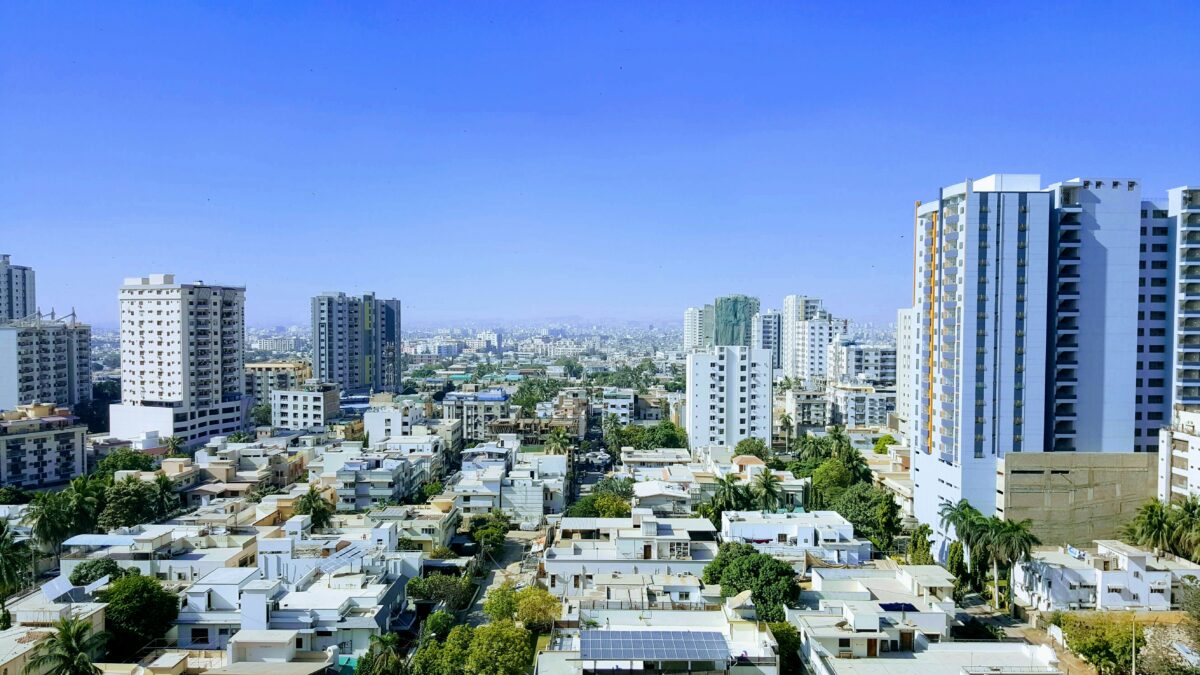In a joint statement organized by the Debt Relief for a Green and Inclusive Recovery (DRGR) Project, former central bankers and finance ministers call for comprehensive debt relief and the mobilization of new financial resources to prevent a default on development and climate goals.
Statement by former Finance Ministers and Central Bank Governors
June 2024
The world is falling behind on achieving the United Nations 2030 Sustainable Development Goals (SDGs) and the UN Framework Convention on Climate Change’s (UNFCCC) recent Global Stocktake found that countries are not on track to meet Paris Agreement targets. The past few years have brought a dangerous mix of conflict, climate shocks, monetary tightening and a deadly pandemic that have led to historic levels of external public debt across the Global South. A growing number of countries now face the potential of not only defaulting on their debt, but also on development and climate goals. According to the United Nations Conference on Trade and Development, more than 3 billion people live in a country that spends more on external debt service than on education, health or investment.
The six years remaining until 2030 still provide sufficient time to change course, live up to the promises global leaders have made and avoid the catastrophic economic and social costs of inaction – but this will not happen unless leaders take urgent and decisive action to address the sovereign debt crisis unfolding in large parts of the Global South.
External public and publicly guaranteed debt levels have more than doubled since 2008, and in terms of debt service payments, 2024 will be the costliest year this century. With a combined population of 1.2 billion people, close to 50 emerging market and developing economies (EMDEs) face debt solvency problems, hindering their ability to undertake critical investment in areas such as health, education and climate action. What is more, EMDEs that are not currently facing solvency challenges may soon experience them without a suspension on debt service and access to new, low cost capital.
To catalyze a green and inclusive economic recovery, and to enable the $3 trillion annual investment needed by 2030 to achieve climate and development goals, we, the undersigned, call for the following:
- A revamped Debt Sustainability Framework that better accounts for external shocks and for investment needs to meet climate and development goals.
2. A reformed Group of 20 (G20) Common Framework that:
- Provides a level of debt relief that enables the country to mobilize the necessary investments to meet its climate and development goals;
- Provides meaningful and commensurate debt relief for all countries facing solvency problems from all creditors, including official bilateral and multilateral creditors, as well as private and commercial creditors;
- Applies a comparability of treatment principle whereby each creditor provides fair levels of debt relief.
3. A stepwise increase in affordable financing, as well as credit enhancement where appropriate, to ensure countries can adequately invest in climate and development without jeopardizing future debt sustainability.
The gravity of the crisis demands an unprecedented response. The window of opportunity to meet globally agreed upon climate and development goals remains open, but is closing rapidly. Such action is modest relative to the costs of inaction. It is time for G20 leaders to spearhead comprehensive debt relief and mobilize new financing to uphold sustainable development and climate objectives.
Otherwise, we risk defaulting on our development and climate goals.
We, the undersigned, sign this letter in our personal capacity. The views expressed and endorsed herein are ours alone and not those of any affiliated institutions or organizations.
- Jean-Paul Adam, former Finance Minister of the Seychelles
- Shamshad Akhtar, former Finance Minister of Pakistan and Governor of the State Bank of Pakistan
- Reza Baqir, Former Governor of the State Bank of Pakistan
- Luiz Carlos Bresser-Pereira, former Finance Minister of Brazil
- Jean Baden Dubois, Former Governor of the Bank of the Republic of Haiti
- Yandraduth Googoolye, Former Governor of the Bank of Mauritius
- Martín Guzmán, former Finance Minister of Argentina
- Patrick Honohan, former Governor of the Central Bank of Ireland
- Florens Luoga, Former Governor of the Bank of Tanzania
- Tito Mboweni, Former Finance Minister of South Africa
- Rakesh Mohan, Former Deputy Governor of the Reserve Bank of India
- Andrew Mullei, former Governor of the Central Bank of Kenya
- Patrick Njoroge, Former Governor of the Central Bank of Kenya
- Kingsley Obiora, Former Deputy Governor of the Central Bank of Nigeria
- Jose Antonio Ocampo, former Finance Minister of Colombia
- Moses Pelaelo, Former Governor of the Bank of Botswana
- Atiur Rahman, Former Governor of the Bangladesh Bank
- Sanusi Lamido Sanusi, former Governor of the Central Bank of Nigeria
- Majozi Sithole, Former Finance Minister of Eswatini and Governor of the Central Bank of Eswatini
- Chalongphob Sussangkarn, former Finance Minister of Thailand
- Murtaza Syed, Former Deputy Governor of the State Bank of Pakistan
